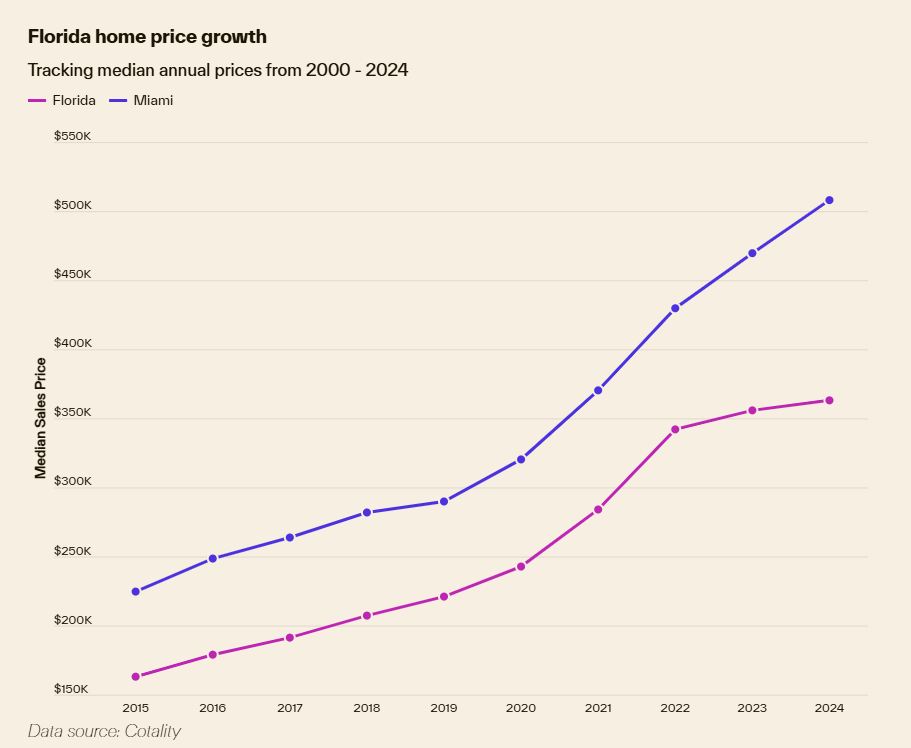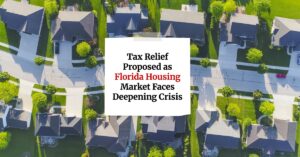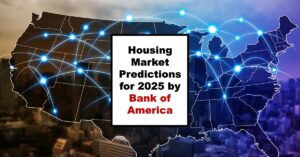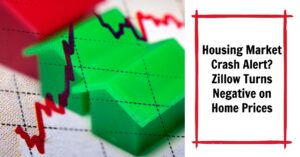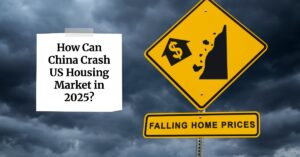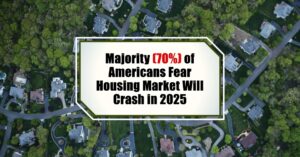If you're wondering what to expect in the real estate world next year, you're not alone. The good news is, most agents are optimistic about the 2025 housing market. A recent survey revealed that a significant majority of real estate professionals anticipate rising home prices and increased transaction volumes throughout the year. Let's dive into what's driving this positive outlook and what it could mean for you, whether you're buying, selling, or just keeping an eye on things.
Housing Market Predictions for 2025 by Real Estate Agents
Why Are Agents Feeling So Good About 2025?
It's easy to feel overwhelmed by the constant chatter about economic ups and downs, interest rates, and housing inventory. These things can make even seasoned real estate folks a little uneasy. However, digging deeper, it seems there's a good reason for the optimism I'm seeing among my colleagues.
Zillow's recent survey of over 300 agents across the U.S. in late 2024 provides some solid insights. Let's break down the key findings:
- Rising Home Prices: A whopping 67% of agents believe home prices will continue to climb over the next 12 months. Even more interesting, 20% of those foresee a large increase. This is a significant jump from mid-2024 when only 44% expected prices to keep rising.
- Increased Transactions: Despite economic uncertainties, a strong 72% of agents predict that the number of home sales will increase. Almost a quarter of that percentage, 22%, are expecting to see a large increase in transactions. Only a mere 10% think transactions will go down.
- A Shift to a Neutral Market: The market is becoming more balanced. 45% of agents believe we're in a buyer's market, while 41% think it's a seller's market. This near-even split suggests a more stable and predictable environment for both buyers and sellers.
But how can we reconcile these optimistic predictions with the realities of affordability and recent sales figures?
The Balancing Act: Prices, Sales, and Affordability
There's a bit of a puzzle here. The National Association of Realtors (NAR) reported that home sales in 2024 hit their lowest annual level since 1995, with just 4.06 million homes sold. So, how can agents simultaneously expect rising prices and increased transaction volume?
Here's my take:
- Pent-Up Demand: After a period of caution and lower sales, there's likely a significant amount of pent-up demand in the market. People put their plans on hold in the face of uncertainty, but life events – marriages, growing families, job changes – don't stop. This can lead to more people looking to move.
- Adaptation to Higher Rates: While interest rates have been a concern, buyers and sellers are starting to adjust. People are adapting by considering smaller homes, different locations, or waiting a bit longer to save more for a down payment. Sellers are more willing to negotiate.
- The “Neutral” Sweet Spot: A neutral market means neither buyers nor sellers have a significant advantage. This can encourage more transactions as both sides feel like they have a fair shot at getting a good deal.
Personal Thoughts and Expertise
As a real estate investor, I've seen firsthand how market sentiment can shift quickly. The optimism I'm hearing from colleagues isn't just based on numbers. It's driven by a sense that the market is finding its footing after a period of volatility.
Important Note: It's really important to note that the national level data can sometimes be a bit too broad to be relied upon fully. I would highly suggest you consider the market conditions of your specific area.
Where Are We Seeing the Biggest Shifts?
The housing market is highly localized. What's happening in one city or state might be completely different elsewhere. According to the Zillow survey, we're seeing:
- Buyer's Markets: Emerging in parts of the Southeast. This might be good news for first-time homebuyers or those looking for more negotiating power.
- Seller's Markets: Still strong in major cities on both coasts. If you're selling in these areas, you might be able to command a higher price.
- Neutral Markets: Predominantly in the Midwest and parts of the Southwest. These areas offer a more balanced environment for both buyers and sellers.
Table: Regional Market Trends
| Region | Market Type |
|---|---|
| Southeast | Buyer's Market |
| Coastal Cities | Seller's Market |
| Midwest/Southwest | Neutral Market |
What Does This Mean for You?
Whether you're buying, selling, or investing, understanding these trends is essential. Here's a quick breakdown:
- For Buyers: Don't panic! Even with rising prices, there are still opportunities. Work closely with your agent to find properties that fit your budget and needs. Consider exploring markets where buyers have more leverage.
- For Sellers: While the market might be shifting towards neutral, you can still get a good price for your home. Work with your agent to stage your home effectively and price it competitively.
- For Investors: Keep a close eye on local market conditions. Look for areas with strong growth potential and consider both short-term and long-term investment strategies.
Recommended Read:
Can China Crash the US Housing Market in 2025?
Warning of a Weak Housing Market: Are We Headed for Another Crisis?
Fannie Mae Lowers Housing Market Forecast and Projections for 2025
Housing Market Forecast 2025 by JP Morgan Research
Housing Predictions 2025 by Warren Buffett's Berkshire Hathaway
Why Trust These Predictions?
It's natural to be skeptical about predictions, especially when it comes to something as important as the housing market. However, surveys like Zillow's provide valuable insights because they:
- Capture Real-Time Sentiment: They reflect the actual experiences and expectations of agents who are on the front lines of the market.
- Combine Data and Experience: They blend statistical data with the practical knowledge of professionals who work with buyers and sellers every day.
- Offer a Broad Perspective: By surveying agents across the country, they provide a more comprehensive view of the national market.
Summary:
While uncertainty will always be a factor in the real estate world, the general sentiment among agents is undeniably optimistic. The predicted rise in home prices and transaction volumes, combined with a shift towards a more balanced market, suggests a more stable and predictable environment for buyers and sellers alike. If the market is on the upswing or not, the key to success in the 2025 housing market will be staying informed, working with a knowledgeable agent, and making informed decisions based on your specific needs and goals.
Work with Norada, Your Trusted Source for Investment
in the Top U.S. Housing Markets
Discover high-quality, ready-to-rent properties designed to deliver consistent returns.
Contact us today to expand your real estate portfolio with confidence.
Contact our investment counselors (No Obligation):
(800) 611-3060
Also Read:
- Majority of Americans Fear Housing Market Will Crash in 2025
- Housing Market Price Forecast for 2025 and 2026 Increased by NAR
- Will the Housing Market Crash Due to Looming Recession in 2025?
- 4 States Facing the Major Housing Market Crash or Correction
- 5 Cities Where Home Prices Are Predicted To Crash in 2025
- New Tariffs Could Trigger Housing Market Slowdown in 2025
- Housing Market Forecast 2025: Affordability Crisis Will Continue
- Lower Mortgage Rates Will Reignite the Housing Demand in 2025
- NAR Predicts 6% Mortgage Rates in 2025 Will Boost Housing Market
- Housing Market Forecast for the Next 2 Years: 2024-2026
- Housing Market Predictions for the Next 4 Years: 2025 to 2028
- Housing Market Predictions for Next Year: Prices to Rise by 4.4%
- Housing Market Predictions for 2025 and 2026 by NAR Chief
- Real Estate Forecast Next 5 Years: Top 5 Predictions for Future
- Real Estate Forecast Next 10 Years: Will Prices Skyrocket?





